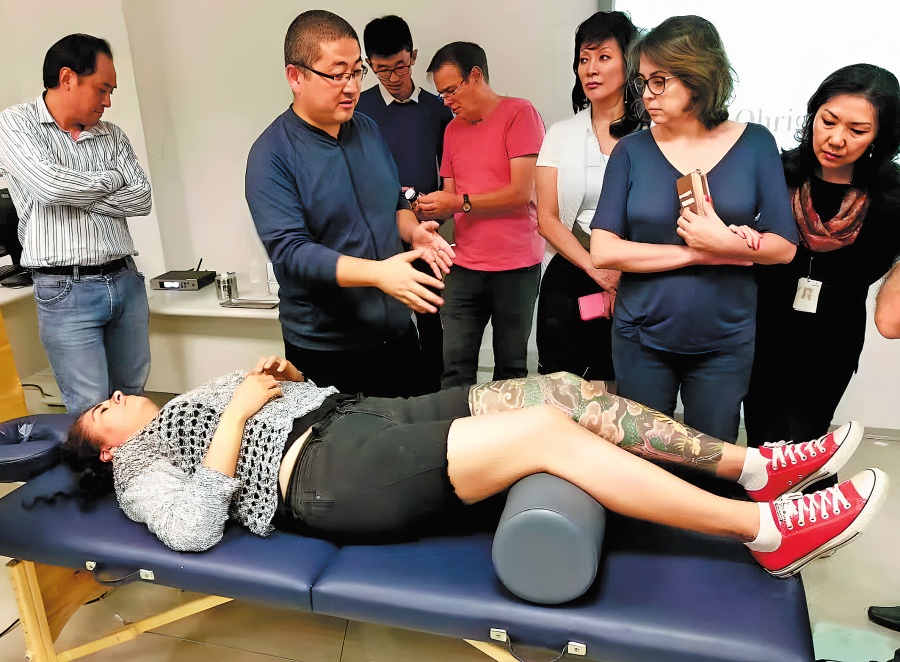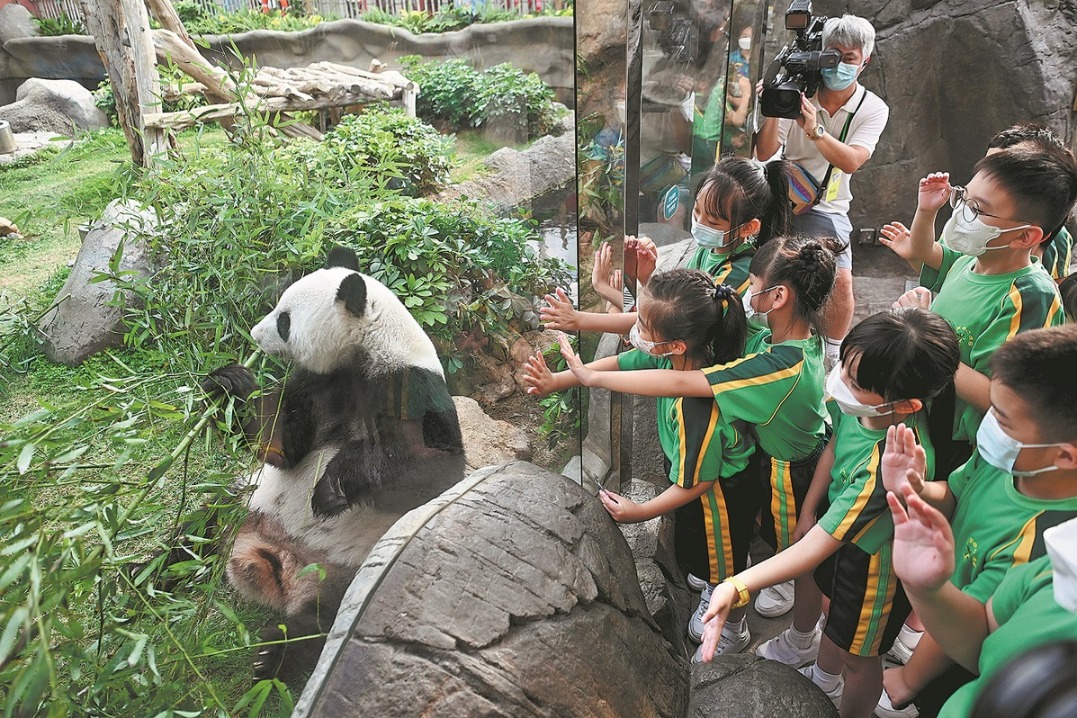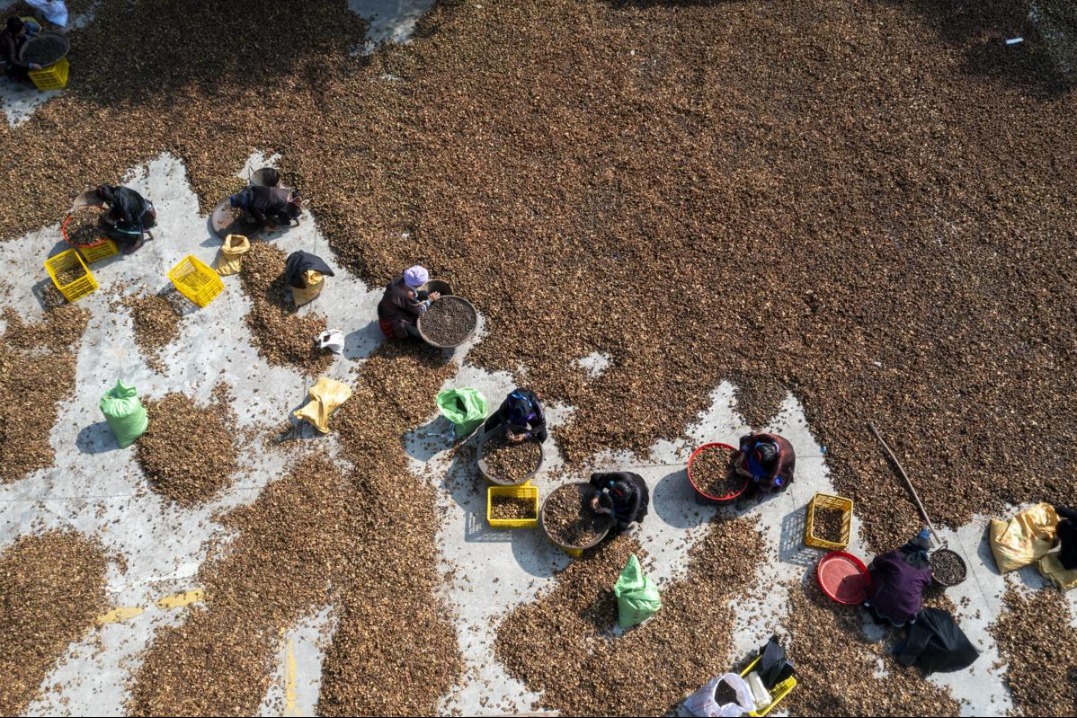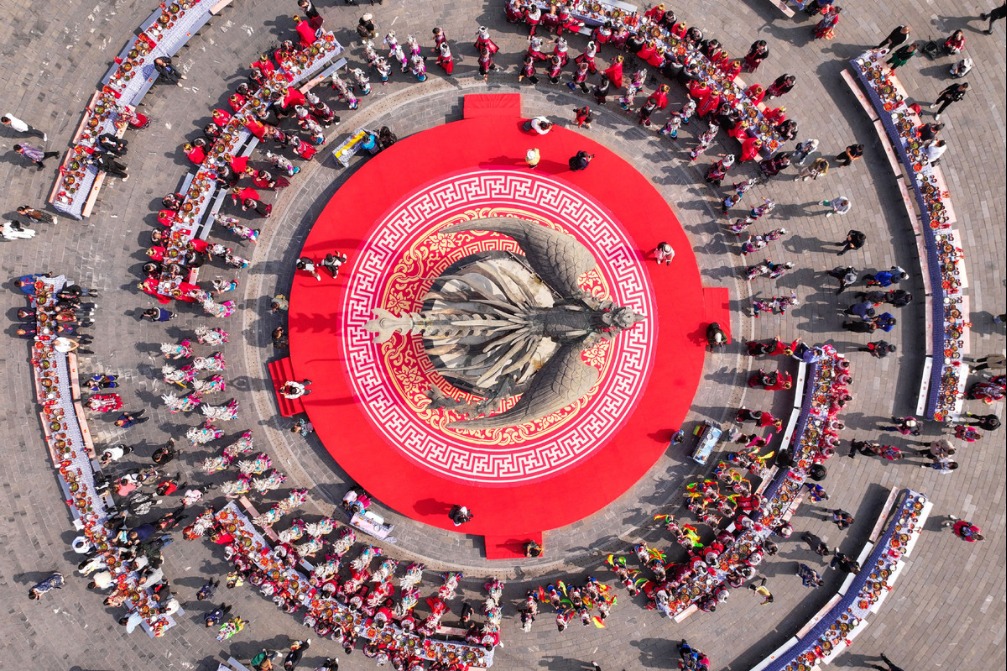TCM winning hearts and minds of Brazilians


Despite knowing that language barriers and distinct eating habits would create troubles during his stay in Sao Paulo, Brazil, traditional Chinese medicine specialist Zhou Qiang did not hesitate to travel to the country for the third time this October, aiming to bring affordable and effective TCM services to local people.
"We have managed to communicate with local people, who speak Portuguese, via interpreters and portable digital translators. My two other co-workers could not tolerate local cold meals at the beginning and experienced diarrhea and abdomen pain, but thankfully, we have brought pills with us and are gradually getting used to food here," he said.
Zhou, from the hospital affiliated to Gansu University of Chinese Medicine in Lanzhou, Gansu province, said he drew strength to cope with challenges linked to living and practicing in a foreign country from local people's recognition of TCM therapies.
"We often say that there are four characteristics of TCM treatment — simple, convenient, effective and low cost, and it turns out these strengths also apply in this foreign land," he said.
"Brazilians trust effects of acupuncture, massage and TCM concoctions and they have found our price to be reasonable and sometimes even lower than that in local major hospitals," he added.
Zhou is among three TCM experts dispatched to a TCM international cooperation center in Sao Paulo this year. The center was jointly established by the hospital and a Brazilian company in September 2018 and began operation about a year later.
The facility offers more than 20 types of TCM therapies and also rolls out training programs for local medical staff and TCM enthusiasts.
So far, the hospital has sent seven healthcare workers to the center for assignments lasting about a year, as well as 14 workers for short-term medical aid or teaching programs.
Qin Jing, a nurse at a community health clinic in Lanzhou that has partnerships with the hospital, was sent to the TCM center in late 2019. She was mainly responsible for collecting medical records, directing patients to proper doctors, processing payments and drug distribution and organizing lectures and free diagnosis events.
To this day, she can easily recall compliments and smiles from patients in Brazil who were satisfied with TCM treatment outcomes.
"There was a Brazilian patient suffering from severe periarthritis, or frozen shoulder. Through a combination of acupuncture, massage, cupping therapies as well as teaching her to do therapy exercises, her pain was significantly relieved," she said.
Another patient that left a lasting impression on her was an elderly relying on a wheelchair to move around. He regained the ability to stand up and even picked up his old hobby of swimming thanks to the joint efforts of several TCM doctors at the center.
"Our doctors have also used TCM concoctions and medicines, in combination with acupuncture, moxibustion and infrared therapies to treat gynecological diseases, which were common due to local climate and lifestyles," she said. "A lot of patients sought services from us by word of mouth."
Wu Bing, Party chief of the hospital, said that the center plans to devote more efforts to tackling common and major medical conditions locally as well as rolling out more training targeting local medical staff.
In June, the hospital signed an agreement with authorities of Duque de Caxias, a city in the Rio de Janeiro metropolitan area in southeastern Brazil, aiming at deepening exchanges in the development of TCM medicines, training and education on TCM skills and knowledge.
Wu Zhendou, head of the National Administration of Traditional Chinese Medicine's international cooperation department, said that China has signed cooperation agreements with more than 40 foreign authorities and international organizations, and established at least 30 high-quality overseas centers for TCM.
Contact the writers at [email protected]




































